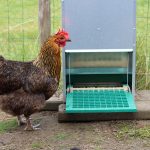Why Do Roosters Crow? (And How To Make Them Stop)
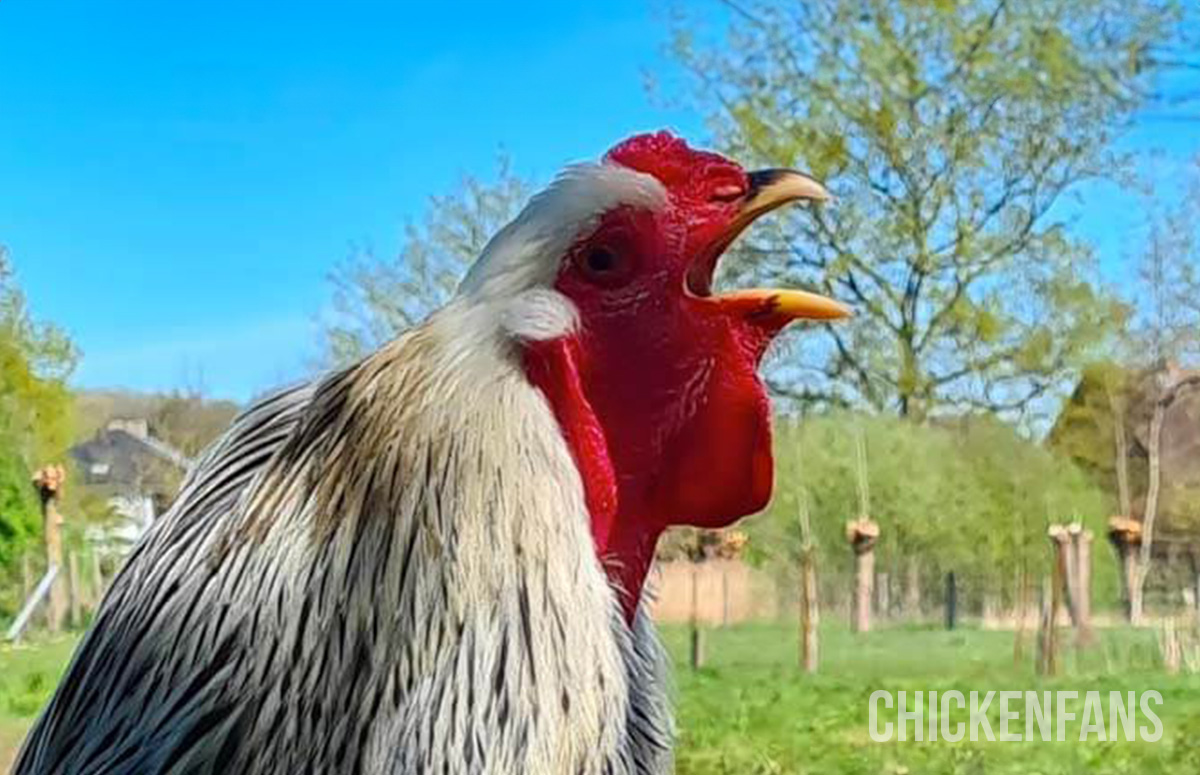
Before alarm clocks existed, roosters used to play that role, waking everyone up in the vicinity with their iconic cock-a-doodle-doo sound. But have you ever wondered why roosters crow?
For starters, roosters are unapologetic when letting others know of their presence. They are proud birds that make a lot of noise, especially in the morning.
There are plenty of reasons why a rooster crows, with their wake-up call being the most famous. Let’s discover why a rooster crows, and at the end, also learn some animal-friendly tips on getting your rooster to stop crowing.
Why Do Roosters Crow
For the longest time, plenty of people tried to find out why roosters crow. There are plenty of studies and research available on the matter. But for now, these are the common reasons many agree on why a rooster crows.
Mark Their Territory
Roosters are fiercely territorial and competitive birds. Usually, a single rooster claims roughly an acre of land and fiercely protects that place from intruders.
Roosters often find the highest perch available to let others know of their territory and crow loudly. Because of a chicken’s highly acute sense of hearing, any potential trespassers will hear this warning and back off.
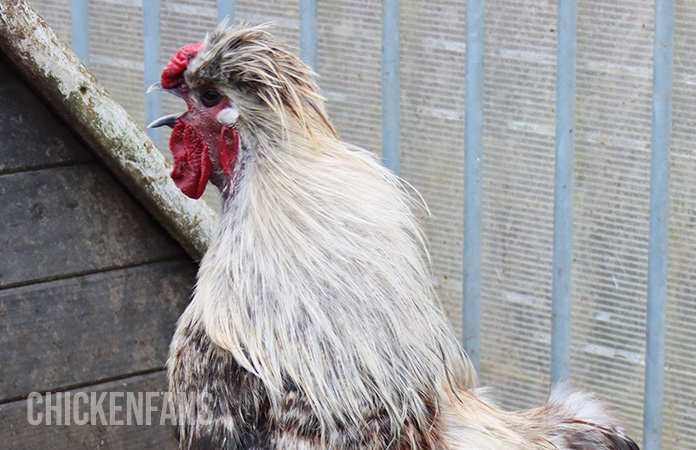
This also serves as a form of communication between roosters. By crowing loudly to one another, they can determine each other’s exact position and avoid conflict altogether. Contrary to popular belief, roosters are not aggressive creatures and rather avoid fights if possible.
In the wild, this behavior is more evident. Because chickens often travel through dense vegetation and lush jungles with less visibility, roosters often crow to let others know they’re coming.
Establish Hierarchy In The Flock
It’s not uncommon to have multiple roosters in one flock. Because of their competitive nature, they tend to fight one another to establish who’s in charge.
This will often lead to fights to help set the hierarchy. And one of the ways they compete for dominance is through crowing.
How the process works is unclear, but the consensus is that the rooster who wins the most fights and crows the loudest becomes the head of the flock. As such, the head rooster often crows first and last in the flock.
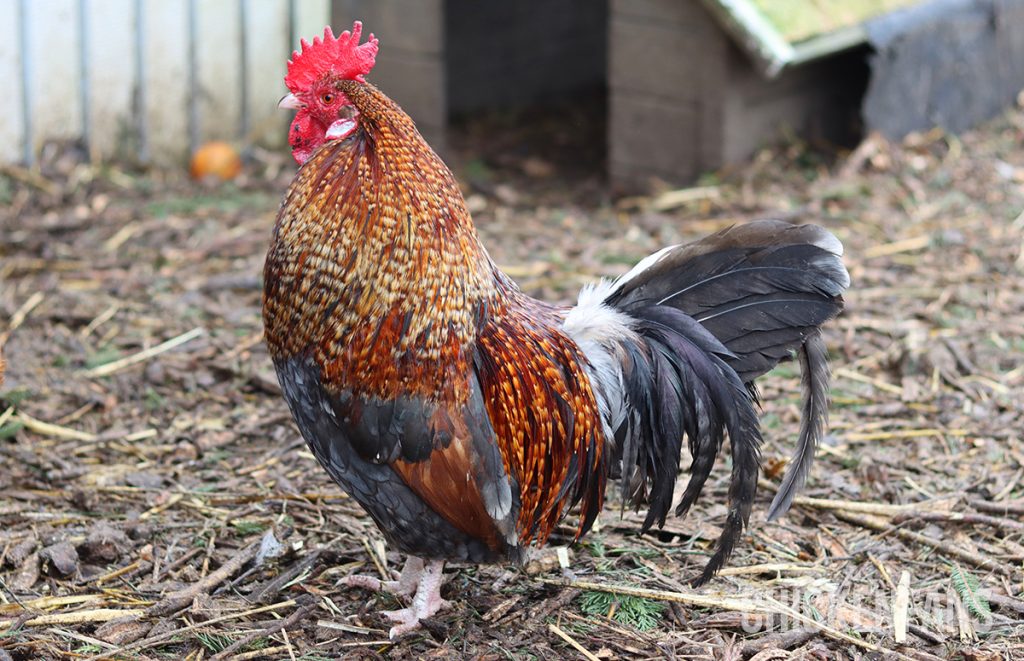
Alert The Flock From Danger
When your rooster starts crowing at night, it could indicate danger lurking nearby.
Using their two senses in tandem, roosters become sirens that alert the flock of any incoming dangers. Their crows also signal the flock to either run or hide, depending on the situation.
However, do take note that this isn’t always the case. Unfamiliar objects like a motorcycle or a car can send roosters crowing distress signals anyway. If they sense something unusual, roosters will often make an alarm call, regardless of danger.
Get The Day Started
The one that most people are familiar with is the early morning crow of a rooster. Besides serving as nature’s alarm clock, this serves an important purpose for the flock.
Before sunrise, the rooster crows to alert the rest of the flock to a new day. Then, he will routinely inspect his territory, ensuring no predators or outsiders are lurking nearby.
Afterward, the rest of the flock could gather and move around. The morning call also encourages the flock to forage for food and get on with their day.
Mating Ritual
Come mating season, roosters tend to crow loudly when they don’t have a partner. This is to alert the hens of the flock that he is single and ready to mingle.
This is especially the case in a flock with multiple roosters. They will do all they can to get a partner, even if it means being obnoxious and crowing loudly during different times of the day.
And after a successful mating, they will let the rest of the world know by crowing loudly again. So when it’s mating season for your birds, be prepared to hear your roosters crow loudly.
What Triggers A Rooster To Crow?
For the longest time, many people believed that the rising sun triggered a rooster to crow early in the morning. However, recent studies dispute this, as many roosters were kept inside dimly lit coops, only for them to crow all at the same time at dawn. And the reason for that is due to their internal clock.
All animals have an internal clock, and roosters are no exception. Their internal clock helps them anticipate the sunrise, allowing them time to establish their territory and get a head start when foraging for food.
Additionally, a rooster can set off a chain reaction with other roosters. So if one of your roosters has an earlier internal clock or the head rooster starts crowing, the rest will follow suit.
However, even without their internal clock, plenty of things can trigger a rooster to crow. Roosters will crow at the sight of danger when eating, impressing hens, dust bathing, and dealing with unusual events. No matter what time of day, roosters will crow if something triggers their fight-and-flight response or if they’re just in the mood to do so.
Is It Possible To Unlearn This Behavior?
A rooster’s crow tends to be annoying, especially early in the morning when you want to sleep longer or don’t want your neighbors to complain. If you’re here to learn how to make your rooster unlearn this behavior, you’re out of luck because teaching a rooster to stop crowing completely is impossible.
The better question you need to ask is how to decrease the number of times your rooster is crowing. The good news is there are several options to try.
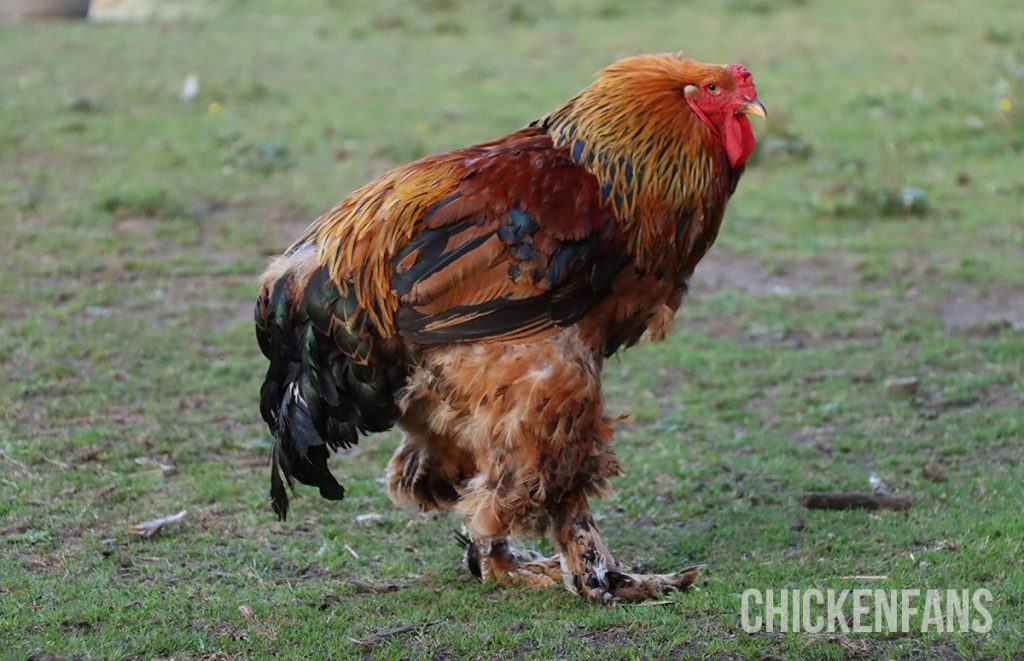
How To Stop A Rooster From Crowing?
If you wish to stop your rooster from crowing, there are plenty of options to explore. However, not all of them are animal-friendly.
Some options that many stay clear of, including us, are anti-crow collars and surgical removal of the vocal cords. While they both are effective, they stress your roosters and do not promote a healthy relationship with your flock.
Choosing a more gentle and natural route is always the best course of action. Maintaining your birds’ well-being is the key to raising a successful flock.
Add More Hens To The Flock
The reason why your roosters are crowing loudly during different parts of the day is likely because there are not a lot of hens in the flock. Roosters are aggressive birds when it comes to mating, so if only a few hens are available to go around, they will no doubt feel stressed.
The ideal number is a ratio of at least ten hens for one rooster. This way, the roosters won’t attempt to crow and fight each other for dominance of the entire flock, as finding a mate will become much easier, making them feel much more secure.
Have Only One Rooster
If increasing the size of your flock is not an option for you, then reducing the number of roosters is your best bet. Ideally, having only one rooster in your flock can lead to drastic results.
The reason why roosters often crow is to show dominance over other roosters and establish a pecking order. If there’s only one rooster, then it will have no reason to compete for dominance because there’s no other rooster for him to fight with.
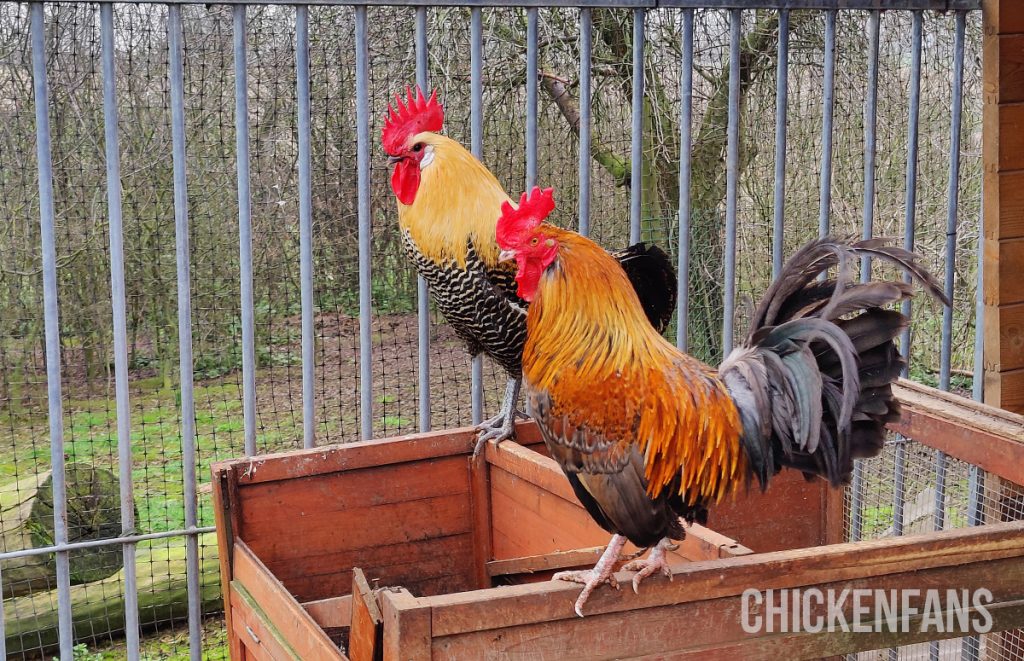
Keep Your Rooster Inside The Coop
One way to prevent your roosters from crowing all the time is by keeping them inside their coops. This helps lessen their encounters with external stimuli that could trigger them to crow.
Make the coop as dark as possible, so almost no daylight can enter. This way, they’re less likely to crow too early in the morning and disturb your neighbors.
Place The Coop Far Away From Your Neighbors
Speaking of neighbors, place your rooster’s coop as far away from the neighbors as possible. This not only prevents disturbing your neighbors, but it also works the other way around.
Your roosters will react and crow to any unfamiliar noises and sights. That also includes any activities by your neighbor.
Summary
If you plan on raising a rooster at home, you might want to consult with your neighbors first and see what they think. After all, raising a rooster in a suburban neighborhood with plenty of lights and noises that a rooster can react to and crow to is not a good idea.
But if your neighbors don’t mind you raising a rooster, try the animal-friendly ways to stop your rooster from crowing too much to avoid causing a disturbance.
If you want to learn more about raising chickens or common health issues, please visit our ‘Raising Chickens‘ and ‘Health‘ pages.

